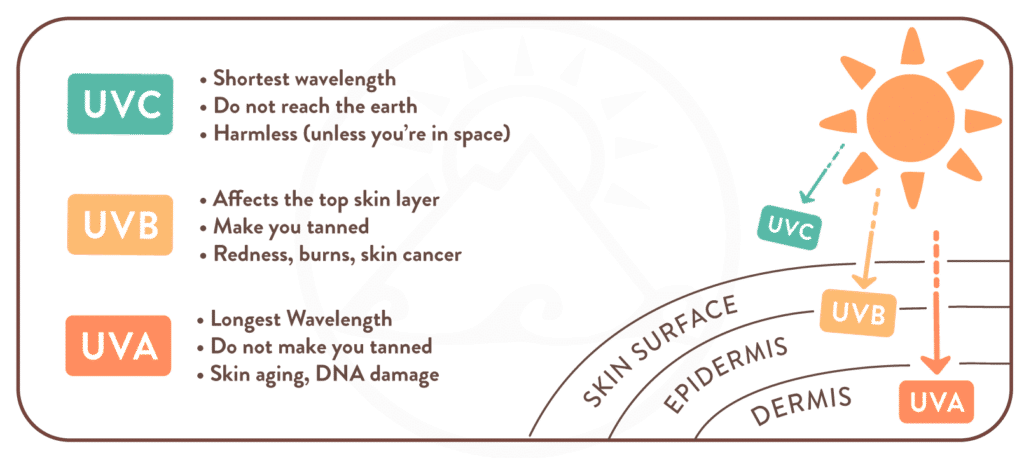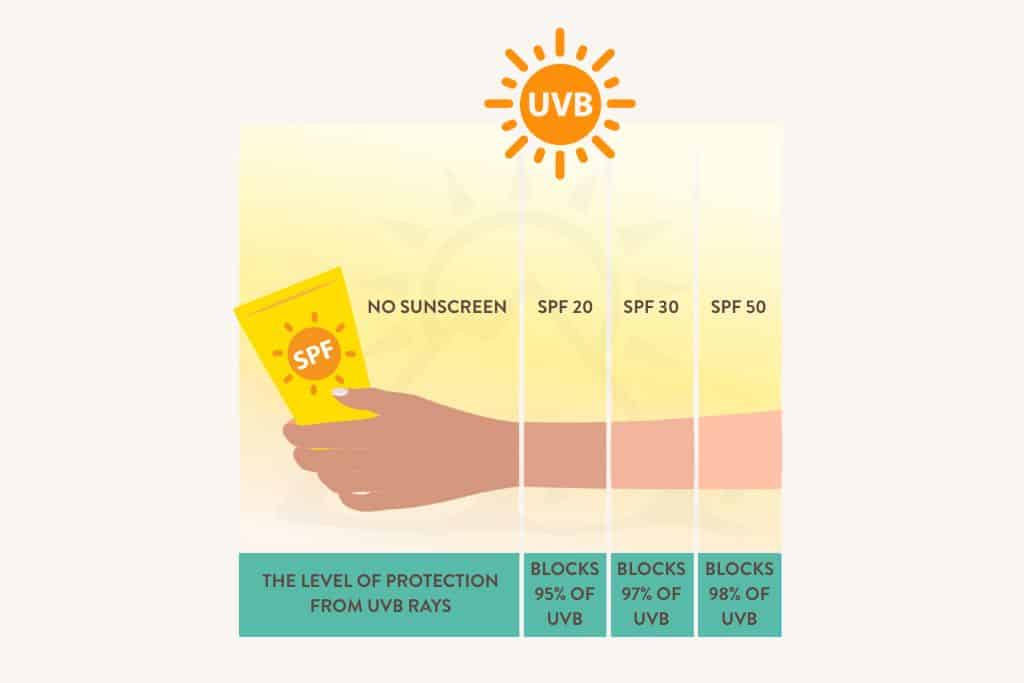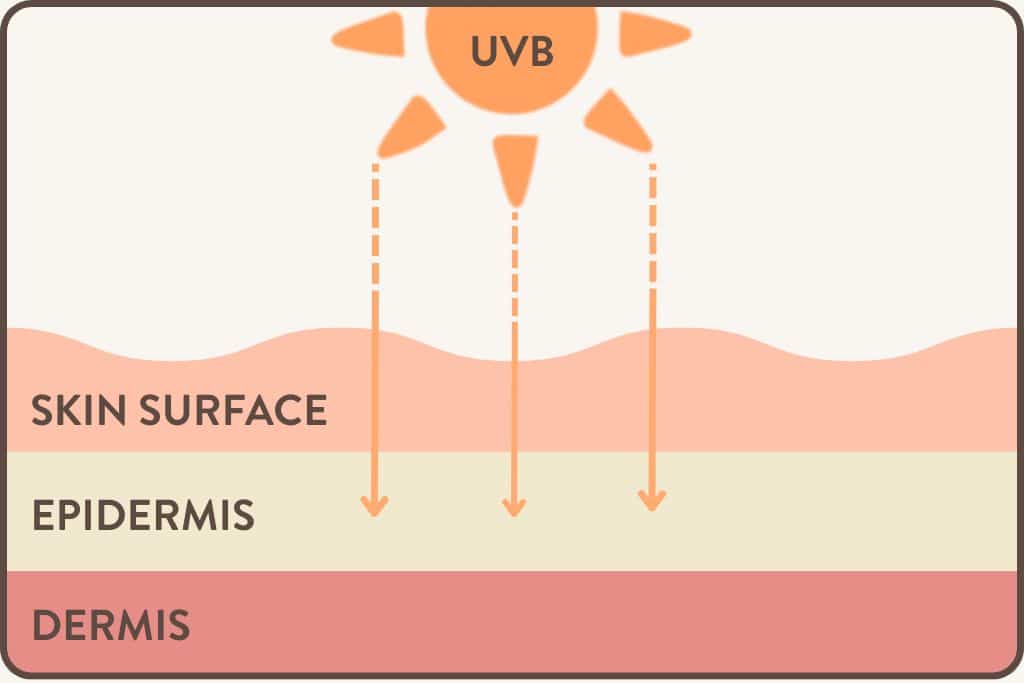Blog
Does SPF impact Vitamin D intake?

By Hanna Oltmanns - January 20, 2025
Concerns about sunscreen hindering Vitamin D production are widespread, but what does the science actually say?
Let’s unpack the facts to put your worries at ease.
Why do you need Vitamin D?
Vitamin D is an essential nutrient that plays a crucial role in maintaining a healthy body. It helps regulate calcium and phosphate levels, which are vital for building and maintaining strong bones and teeth. Without adequate Vitamin D, the body struggles to absorb enough calcium, increasing the risk of conditions like osteoporosis and rickets.
But that is not all. Research increasingly suggests that Vitamin D may also support the immune system, reduce inflammation, and play a role in protecting against certain chronic diseases. While science is still evolving, what is clear is that maintaining healthy levels of Vitamin D is essential for overall well-being.

How is Vitamin D produced?
Vitamin D production is triggered when UVB rays from the sun interact with your skin. UVB rays stimulate a compound in the skin, called 7-DHC, to produce Vitamin D3. This process takes place in the outer layers of your skin and is influenced by factors like the intensity of sunlight, the amount of skin exposed, and your skin tone.
SPF is designed to block UVB rays, protecting your skin from sunburn and reducing the risk of damage such as premature aging and skin cancer. But does this protection come at the cost of your body’s ability to produce Vitamin D? It’s a common concern that sunscreen might interfere with Vitamin D production, as UVB rays are essential for triggering this process in the skin. However, is this worry really justified? Let’s take a closer look.

What happens to Vitamin D intake when you wear sunscreen?
The good news is: while SPF does reduce UVB penetration, no sunscreen is 100% effective. Research shows that typical sunscreen use does not significantly impact Vitamin D levels. For example, SPF 50 blocks 98% of UVB rays, leaving 2% of UVB rays that still reach your skin. That might sound little, but it is more than enough for your body to produce sufficient Vitamin D – even if you apply sunscreen exactly as instructed (which, let’s face it, most of us don’t).
Interestingly, your body has a natural limit for how much Vitamin D it can produce from sunlight. After a certain point, further sun exposure won’t increase Vitamin D production, but can lead to harmful effects like DNA damage and sunburn.

How much UVB do you really need?
The reality is, your body does not need much UVB exposure to produce Vitamin D. Even small, incidental amounts of sunlight during your daily activities are usually enough to keep your levels healthy. Studies show that for example in Spain during spring and summer, 10-20 minutes of midday sun exposure on 25% of the body, such as face, arms, and legs, are sufficient to produce adequate Vitamin D.
Generally speaking, the amount of UVB exposure needed daily for Vitamin D production depends on the skin tone, with light skin requiring 5-15 minutes and darker skin needing about 30 minutes to a few hours. Certain factors, such as geographical location, season, time of day, and the skin area exposed also play an important role. While midday sun and larger exposed areas are the most effective for Vitamin D production, even other times of the day and less skin exposure can be more than enough to keep your Vitamin D level steady.
However, your body naturally limits how much Vitamin D it can produce, so spending more time in the sun won’t boost your levels—it will only increase your chances of sunburn and skin damage. So, more sun exposure doesn’t mean more benefits—just more harm.

Why choose sun protection?
Without sun protection, UV rays can cause more harm than good. Excessive UV exposure is directly linked to skin cancer, premature aging and DNA damage. While it is true that UVB helps you to produce Vitamin D, the same rays are also responsible for sunburn and skin cell mutations.
Dermatologists agree: the risk of unprotected sun exposure outweighs any perceived Vitamin D benefits. The good news is that you can get all the Vitamin D you need, without putting your skin at risk.
How to get the Vitamin D you need?
Getting enough Vitamin D is easier than you might think and you do not have to rely on the sun alone.
⇒ SUNLIGHT
Getting a little UVB exposure during your daily activities helps your body naturally produce Vitamin D. In the summer, just a few minutes in the sun on your face, arms, or legs, 2-3 times a week, is usually enough.
Keep in mind that longer sun exposure won’t increase your Vitamin D levels, and even with sunscreen, your body still gets enough UVB rays to produce what it needs.
⇒ FOOD
⇒ SUPPLEMENTS
Taking Vitamin D supplements is a safe and reliable way to keep your levels healthy. Consider asking your doctor for a simple blood test to check your Vitamin D levels, and then discuss the right supplement dosage based on your results.

The bottom line
The idea that sunscreen prevents your body from producing Vitamin D is a myth. Even when applied correctly, SPF protects your skin from harmful UV rays while still letting your body produce the Vitamin D it needs. Pair this with a nutritious diet and supplements if necessary, and you’ll get all the Vitamin D your body requires—without compromising your skin’s health.
So there you have it: keep slapping on the SPF, knowing that you are protecting your skin and staying healthy at the same time.
Want to continue reading?
about the author
Hej, I’m Hanna. I love the outdoors and I am the first one to enjoy every beam of sunshine possible. Through traveling several countries over the past few years, I have become more and more aware of the great need for sustainability in every aspect of our daily life. Through working with Suntribe I am joining the movement of sustainable production of organic cosmetic and help to raise awareness about the issue of harmful chemicals in personal care products for humans and nature alike.




